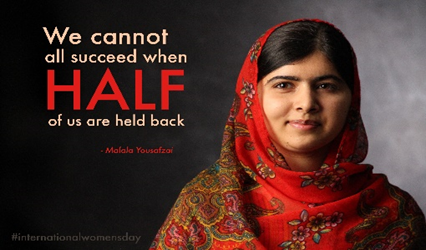GLOBAL GENDER GAP INDEX PROVES CHRISTIAN VALUES ADVANCE GENDER EQUALITY
- Jeffrey Ram

- Jun 28, 2024
- 3 min read
Updated: Jun 28, 2024
Toronto, Canada Jeffrey S. Ram, Editor June 28, 2024
For the past 15 years, the Global Gender Gap Index, a key initiative of the World Economic Forum, has diligently tracked and documented the status of gender equality across four crucial domains: Economic Participation and Opportunity, Educational Attainment, Health and Survival, and Political Empowerment. This comprehensive report serves as a vital resource for understanding the global landscape of gender equality.
The Global Gender Gap Index report, published on June 11, 2024, shows the difference in gender parity between Christian-majority and non-Christian-majority economies (nations). Women in non-Christian majority nations seeking equality can join the Christian crusaders for gender equality.
ONLY CHRISTIAN-MAJORITY NATIONS IN THE TOP 20 POSITIONS
Among the 146 economies covered in the 2024 index, the Christian-majority nations have made significant strides, holding all the positions in the global top 20. These include Iceland (1st), Finland (2nd), Norway (3rd), New Zealand (4th), Sweden (5th), Nicaragua (6th), Germany (7th), Namibia (8th), Ireland (9th), Spain (10th), Lithuania (11th), Belgium (12th), Republic of Moldova (13th), United Kingdom (14th), Denmark (15th), Ecuador (16th), Portugal (17th), South Africa (18th), Costa Rica (19th), and Switzerland (20th). Notably, some Christian nations in the top 20 list belong to developing societies, a testament to the power of a modern mindset in enabling gender equality, regardless of wealth.
GLOBAL RANKING OF REGIONS
The report also ranked the regions on the basis of the state and progress of gender equality in the nations of that region: Europe (1st) with a gender parity score of 75%, Northern America (2nd) with a gender parity score of 74.8%., Latin America and the Caribbean (3rd) with a gender parity score of 74.2%, Eastern Asia and the Pacific (4th) with an overall gender parity score of 69.2%, Central Asia (5th with a score of 69.1%.), Sub-Saharan Africa (6th) with a gender parity score of 68.4%., Southern Asia (7th) has a gender parity score of 63.7%, and the Middle East and North Africa (8th) rank last among all regions, with a gender parity score of 61.7%.
134 YEARS WAIT ESTIMATED FOR FULL EQUALITY
However, the report's projections serve as a stark reminder of the urgent need for action on the gender equality issue. It estimates that, at the current pace, it will take a staggering 134 years to achieve full equality, a timeline that extends five generations beyond the 2030 Sustainable Development Goal (SDG) target. These universal goals, approved by all United Nations members, are a call to immediate action to address our world's urgent environmental, political, and economic challenges, including gender inequality.
RELIGIONS’ ROLE IN SUPPORTING WOMEN’S SUBJUGATION
Most religions were born thousands of years ago. They reinforced the customs, traditions, cultural, and moral values of the time by providing them with religious sanction. This included the secondary position and servanthood of females who took orders from male members of their families and served them. In return, the male members provided safety, security, and sustenance to the female members. The male and female elders conditioned girls from childhood to prove that they were useful by being obedient and servile. After marriage, girls moved from the maternal cage to the in-law’s cage with a new set of controllers and rulers. Even today, things have not changed much in most societies.
CHRISTIAN WOMEN’S STRUGGLE
Christianity was no different. In the 19th century, education, scientific, and technical developments provided economic freedom to middle-class women. Some of them started dreaming of breathing freely with respect and dignity. They started demanding and agitating for equal rights. The conservative church and political leaders tried to malign them and suppress them. However, some enlightened men, women, church leaders, and politicians recognized the gender injustice and began to support the women’s struggle for equality. The progress of these Christian women has been slow but steady.
As the report shows, the Christian nations also have not attained full gender equality; the uphill battle continues there, too.
OPTIONS FOR WOMEN IN NON-CHRISTIAN MAJORITY SOCIETIES
If this is the condition of enlightened Christian nations, then one can easily imagine the situation of women in non-Christian societies. Most non-Christian societies deprive women of educational and employment opportunities. They try to keep women economically and socially dependent on their families’ males. These societies still retain the mindset of the Dark or Middle Ages, so the well-being and happiness of women are not given importance.
Non-Christian women should challenge gender injustice within their own religions and societies and seek life with dignity, respect, and equal rights. Suppose they realize that it is impossible to change the narrow and prejudiced mindset of their societies and religions. In that case, they should revolt and bolt for those Christian groups that believe in women’s rights, justice, and equality. Globally, today’s women are fighting battles not only for themselves but also for all women of the future generations!
PLEASE SHARE THIS POST --- THANKS











Comments